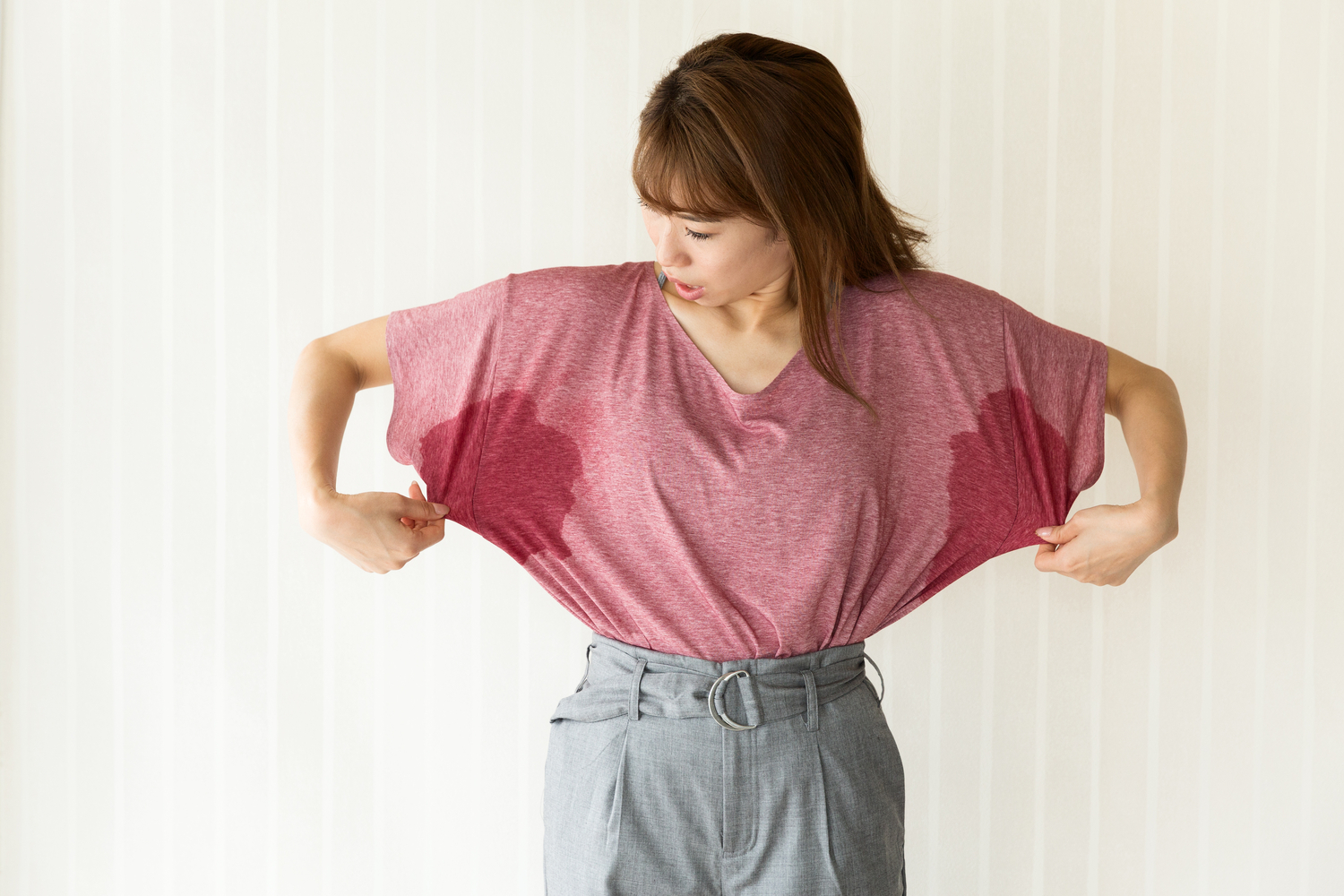
Normal and Not So Normal Reasons The Body Sweats
Sweating is a natural and essential process for the body. It helps regulate our temperature, prevent us from overheating, and eliminate toxins. But sweating can be a nuisance at times, like when you’re wearing your favorite top, only to leave embarrassing armpit stains. When this happens, it’s essential to differentiate between some of the typical and non-typical reasons for excessive sweating.
As mentioned, perspiration helps to regulate body temperature by releasing salt-based sweat via the sweat glands of the armpits, face, palms and feet. Sweating is healthy, in fact, inadequate sweating can quickly lead to overheating issues. Typical and healthy reasons for sweating include:
- Exercise: Or intense physical activity causes sweating as a way for the body to cool itself down.
- Heat and humidity: The warmer and more humid the temperature; the harder your body has to work in order to regulate its temperature. This causes you to sweat as a result.
- Skin detoxification: Sweating is actually a beneficial way to eliminate heavy metals, chemicals, and bacteria from the body.
- Anxiety or stress: When we experience stress, the body releases cortisol (a stress hormone), which triggers the sweat glands to produce more perspiration. Stressful situations (i.e., work, school, traffic, relationship stress, etc.) can all trigger the production of cortisol which will trigger excess sweat secretion.
Now that we’ve examined some normal and healthy reasons for sweating, here are some not so normal reasons for sweating or hyperhidrosis (heavy sweating) that may indicate an underlying health issue:
1. Perimenopause
This is the stage leading up to menopause, in which female hormones (estrogen and progesterone) begin to decrease and become unbalanced. In fact, studies show that roughly 85 percent of women report hot flashes during perimenopause. Drops in both estrogen and progesterone, which normally regulate body temperature, can cause feelings of sudden warmth, flushing, and excessive sweating (or hot flashes).
2. Medication sweats
Taking certain medications can also cause excessive sweating, especially for those who take stimulants like caffeine, nicotine, high blood pressure medications, opioids (i.e., morphine, hydrocodone, and Dilaudidand), and stimulants can all increase the body’s metabolic rate as well as heart rate, triggering heavy sweating.
3. Primary focal hyperhidrosis
Excessive sweating that is not related to physical activity or environmental triggers is known as hyperhidrosis. This condition causes the body to sweat excessively and profusely, especially the hands, underarms, feet, face, and scalp. Excessive sweating can also be caused by medical conditions like diabetes or thyroid disease.
4. Pregnancy
Pregnancy may also cause women to sweat more than usual, especially in the later stages where there’s a lot of physical activity and emotional stress. During pregnancy, the female body produces hormones that cause an increase in heat production. Sweating can also be a symptom of pregnancy if you’re experiencing more than the usual amount.
5. Thyroid issues
The thyroid gland is responsible for the distribution of hormones in your body. Hormones play an essential role in controlling your body’s metabolism. When the thyroid doesn’t produce enough hormones, you may start to sweat more than usual due to a condition called hypothyroidism, which occurs when there isn’t enough thyroxine being produced by the thyroid gland.
6. Diabetes
A healthy body releases insulin to break down sugars in the bloodstream into energy. However, when you have diabetes, the body either doesn’t produce enough insulin or can’t utilize insulin effectively, which results in excess sugar accumulating in the blood. This also causes your kidneys to release extra water, which leads to increased perspiration and sweating.
If you’re experiencing excessive body odour, your sweat could be the culprit. When bacteria around the sweat glands break down sweat acids, it can give off a foul smell. This is particularly common in hot climates with high humidity. To protect yourself from offensive body odor:
- Wash your underarms daily to help get rid of the bacteria that causes body odor.
- Apply antiperspirant/deodorant right after showering or bathing for optimal benefits.
- Change out of sweaty clothes and socks after working out or sweating excessively to prevent bacteria and skin infection.
- Get regular exercise to get your body moving and help regulate perspiration levels.



